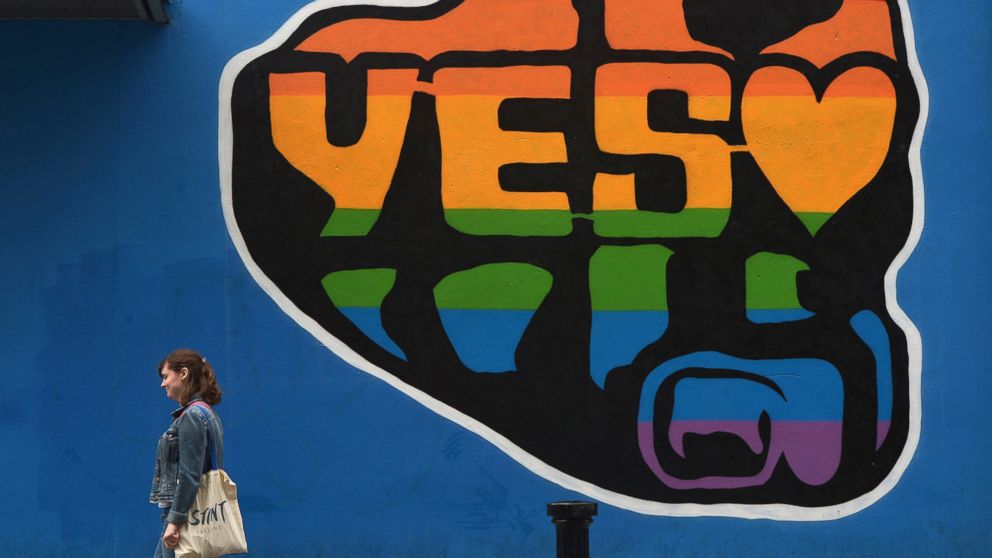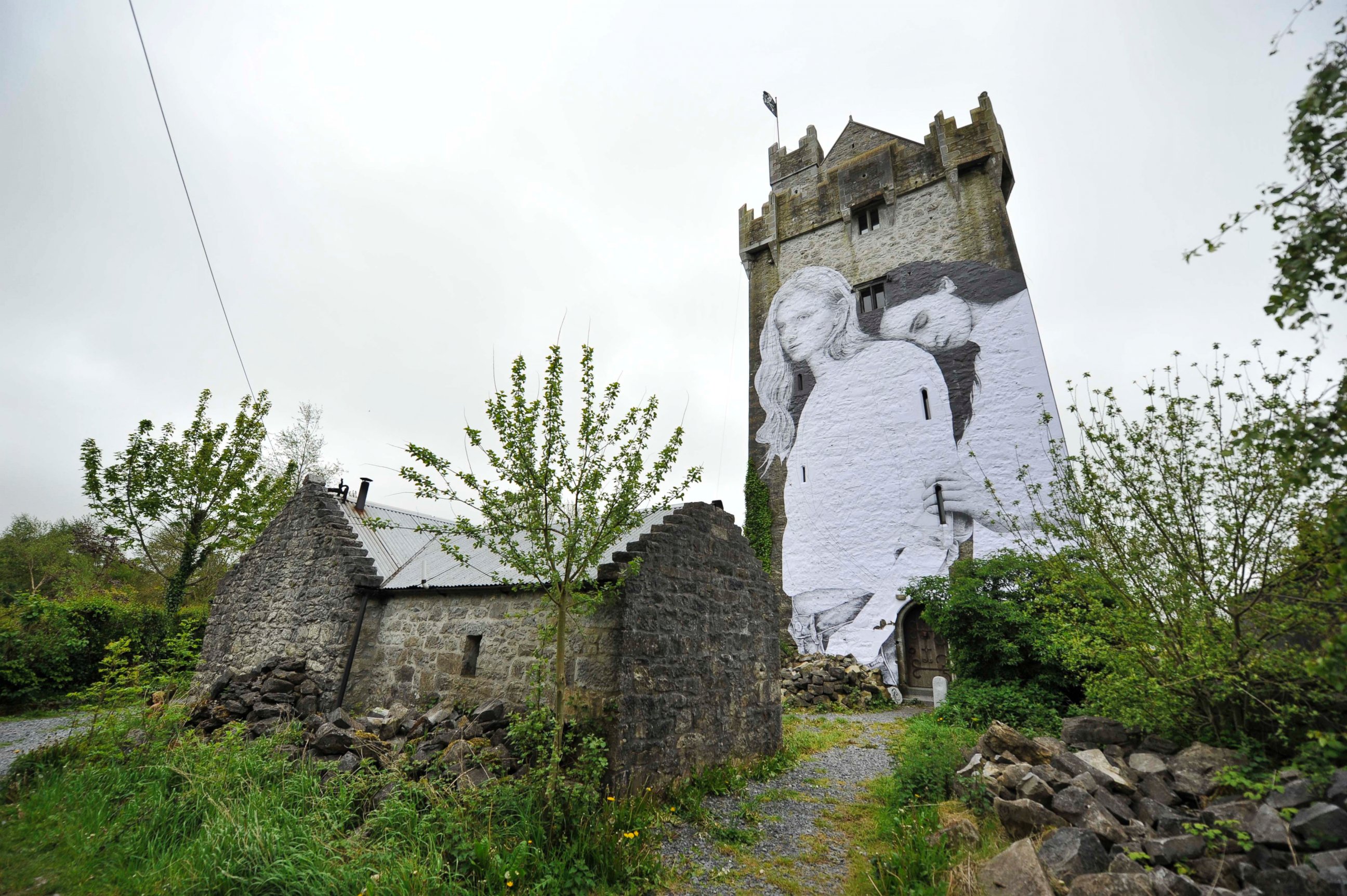Historic Vote in Ireland On Gay Marriage
Could become the first country to legalize it through a referendum.

— -- Ireland could become the first country to legalize same-sex marriage through a referendum today.
Here are ten things to know about the vote:
What is the vote for?
Since 2010, same-sex couples in Ireland can form a civil partnership. Today, however, voters will be asked whether the Constitution should be changed to extend civil marriage rights to same-sex couples. Referendums are needed when changes to the constitution are proposed. The amendment to Article 41 would be: "Marriage may be contracted in accordance with law by two persons without distinction as to their sex.”
Who can vote and when?
Irish citizens, over the age of 18, who are living in Ireland and registered can vote. Citizens of Northern Ireland, which is part of the U.K., cannot vote. Polls are opened between 2 p.m. ET and close at 5 p.m. ET. Results will be known on Saturday.
If members of the LGBT community already have civil partnerships, why legalize marriage?
Civil partners are recognized by law but they do not have constitutional protection. Legal protection can be amended or even revoked by a government. In addition, married couples are given rights specific to family, for issues such as taxation and social welfare.

Why is this vote a historic event?
Ireland isn't the first country to submit this same-sex marriage to a referendum: Slovenia and Croatia both had referendums. The results in both countries, however, was "no." It would be a historic event if Ireland voted "yes", becoming the first country to do so. In addition, many in Ireland see this vote as an opportunity to show a different side to its Catholic conservative image.
Why now and who is behind this vote?
Homosexuality was decriminalized in Ireland in 1993, after gay rights activist and politician Dan Norris brought the case to the European Court of Human Rights. In recent months, a coalition of organisations called Yes Equality have been canvassing the country and launching campaigns, lobbying for a "yes" vote. The campaign was led by the people, and it’s been so inspiring to see how proactive everyone has been, Joe Carlin, a gay man from Northern Ireland who has been watching the campaign closely, told ABC News. Carlin has over 60 cousins, many of which live in Ireland. "My uncles tell me they'll vote "yes" because "Ireland is changing," he said.
What are Irish citizens saying?
"It's the topic on everyone's lips," Carlin said, "it's a crazy emotional day," adding that for members of the LGBT community it felt like "finally getting a voice." Celebrities such as Bono and Colin Farrell are among many of those who have voiced their opinions. U2 frontman Bono, speaking in Vancouver, said: "Trying to co-opt the word ‘marriage’ is like trying to co-opt the word 'love'. You can’t own it. Marriage is now an idea that transcends religion. It is owned by the people. They can decide."
Is it a religious issue?
Many Catholic groups and priests have been vocal about their opposition to same-sex marriage. One of them is Archbishop Diarmuid Martin who, in a column in the Irish Times, said he did not want to impose his views on others but believed marriage should be between a man and a woman.
"Marriage is about love, marriage is about commitment and marriage is about family. You cannot talk of family without talking about children," Martin said.
The Marriage Bill 2015, which could be enacted, provides that priests will not be obliged to perform same-sex marriages. Justice Kevin Cross, Chair of the Referendum Commission, told the Irish Times that this referendum was solely about marriage, not about religion: "This referendum is about marriage –who may marry, who may not marry. If it passed it would have the effect that I have described," and refuted the arguments that same-sex marriage would have an effect on surrogacy and adoption, which are, he said, regulated and protected by law.
Is it a generational issue?
The Irish Times/Ipsos MRBI states that 71 percent of those between the ages of 18 and 24 who are registered intend to vote "yes" compared to only 34 percent of those who are 65 or older. Not everyone thinks there's a generational divide however, and many believe there is more of rural and urban divide in Ireland.
What are the polls predicting?
The latest IrishTimes/Ipsos MRBI same-sex marriage referendum poll shows that, excluding those who are undecided, 70 percent are in favor of a change, with 30 per cent against. The Millward Brown for the Sunday Independent puts the yes at 69 percent, and the Red C poll for the Sunday Business Post puts the yes at 73 percent.
Could the polls get it wrong?
Voting results are often unpredictable, especially when it comes to referendums on social issues. Some voters may feel their views are not publicly acceptable and therefore not necessarily come forward during polling. Turnout will be influential in the result, as certain demographic groups are more likely to vote. The level of undecided is relatively low, at 13 percent.



